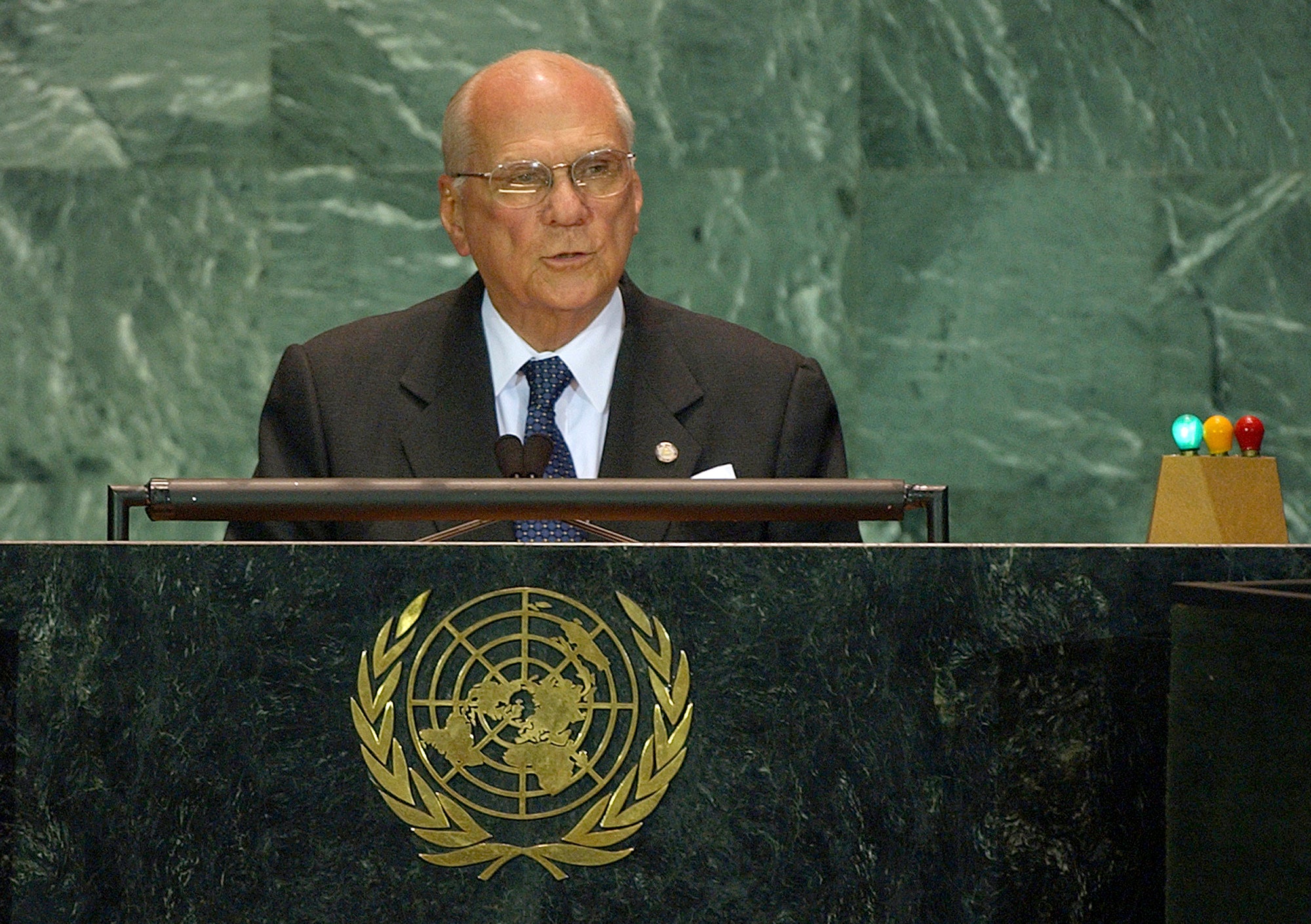Enrique Bolaños, former Nicaragua president, dies at 93
Former Nicaraguan President Enrique Bolaños Geyer, a businessman who led the country from 2002 to 2007, saw his predecessor and old running mate locked up for corruption and pushed for the country’s economic development, has died

Your support helps us to tell the story
From reproductive rights to climate change to Big Tech, The Independent is on the ground when the story is developing. Whether it's investigating the financials of Elon Musk's pro-Trump PAC or producing our latest documentary, 'The A Word', which shines a light on the American women fighting for reproductive rights, we know how important it is to parse out the facts from the messaging.
At such a critical moment in US history, we need reporters on the ground. Your donation allows us to keep sending journalists to speak to both sides of the story.
The Independent is trusted by Americans across the entire political spectrum. And unlike many other quality news outlets, we choose not to lock Americans out of our reporting and analysis with paywalls. We believe quality journalism should be available to everyone, paid for by those who can afford it.
Your support makes all the difference.Former Nicaraguan President Enrique Bolaños Geyer, a businessman who led the country from 2002 to 2007, saw his predecessor and old running mate locked up for corruption and pushed for the country’s economic development, has died. He was 93.
His family said in a statement that Bolaños died late Monday. The cause was not disclosed.
Bolaños was born May 13, 1928, in Masaya, was educated in Catholic schools and earned an engineering degree at Saint Louis University in the U.S.
In the 1950s, he led a cotton consortium that became one of Nicaragua’s largest. He headed a number of private companies over the next two decades and then eventually held leadership roles in Nicaragua’s most important business associations during the 1980s.
The victory of the Sandinista rebels and the fall of dictator Anastasio Somoza in 1979, led to the new revolutionary government confiscating more than 10 of his businesses. Current President Daniel Ortega led that government from 1985 to 1990.
As president of the Superior Council of Private Business, he battled the Sandinista Front government over human rights and individual freedoms, “for which he was subject of a pair of arrests and confiscation of all of his family’s assets in 1985,” according to a biography published by the Enrique Bolaños library.
In 1995, Bolaños joined Arnoldo Alemán on the winning conservative Liberal Party ticket and served as vice president. In 1998, he denounced a secret agreement between Alemán and Ortega that reformed the electoral law to allow a candidate to win the presidency with a minimum of 35% of the vote, down from 45%. That change would allow Ortega to retake the presidency in 2006 with just 38% of the vote.
Bolaños took the top spot on the Liberal ticket in the 2001 elections and won with 56% of the vote. He ran on a platform of “governability, democracy and transparency.” During Bolaños’ presidency, Alemán was charged with fraud, money laundering, misuse of public funds and sentenced to 20 years in prison, of which he served six, mostly under house arrest. He was absolved under the Ortega administration in 2009.
As president, Bolaños promoted job creation in free-trade zones, as well as investment in tourism and agriculture. His adversaries accused him of favoring business sectors with government projects and not giving enough attention to Nicaragua’s poor. He pushed for the Central America Free Trade Agreement with the United States, which Nicaragua’s congress ratified in 2005.
His government continued to face opposition from Sandinista Front lawmakers in congress, as well as frequent strikes and highway blockades by students and unions tied to the Sandinistas.
After massive street protests sparked by proposed changes to Nicaragua’s social security system in 2018, Bolaños criticized Ortega’s repression of dissent and called for dialogue.
“To build a dreamed-of Nicaragua, we have to overcome the great vices that have characterized our society: corruption, perversion in the use of power, caudillismo and populism,” Bolaños said in a 2019 interview with a local online publication. If not, he warned, “the future will be more of the same.”